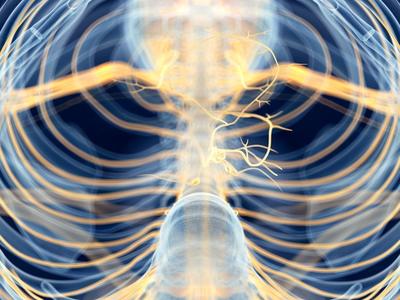Cry freedom
The liberating effect of emotional detox
Imagine being a parent who goes from carer to cared-for in the space of a year or the sports junky now struggling to walk. Imagine having to deal with people who think the sickness eating your body exists only in your head because you look so ‘well’. These are just some of the realities facing sufferers of chronic illness – and this emotional baggage can be as toxic as the bacteria, viruses, parasites, and fungus that attack the body physically.
“People who have been suffering for many years carry a lot of emotional baggage,” explains Neomed director, Suzana Vitti.
“Each of us carries something from our past lives or current circumstances, and none of us knows what another person is truly going through.
“So, when people do a detox therapy, they usually become very emotional because once the toxins start to release from the body, all those hidden emotions, that may have been buried for years, start to come to the fore – and they have to be dealt with.”
Recognising and resolving emotional trauma is an essential – and often painful – part of any multilayer treatment. Resentment, grief, sadness, anger, bitterness, guilt … most people will have experienced some, if not all, of these emotions at some point in their lives, but for people with chronic conditions, these emotions can run incredibly deep. It is not uncommon at Neomed to hear stories of frustration from Lyme disease sufferers who faced an uphill battle to get diagnosed, let alone treated. We understand the struggle of mothers unable to engage fully in their children’s lives. We also know how unfair life can seem and how important it is to try and rebalance the scales.
“We offer group sessions and group activities to support guests who are emotionally detoxing or who need help to activate this release. We also have private sessions for guests who struggle with this in order to give them an extra level of support,” says Suzana.
“Once in a safe, nurturing environment guests finally feel safe to let go, and they can let down the facade of strength that has been keeping them going.”
In many cases, emotional detox can feel like taking two steps forward and ten steps back as the process can often heighten feelings. This is not unusual and it is important to feel and accept these lower emotions in order for cleansing to take place.
The key here is not to give up. Negative emotions need to be released and we advise our guests not to suppress or reject them. Without a doubt, emotional detox can be exhausting and disorientating, but we need to breathe, feel and accept all of these emotions, no matter how painful they are, because it’s that acceptance that will hasten the process of detoxification.
“Physical treatments often trigger the emotional detox,” says Suzana. “If something upsets you, you suddenly find it upsets you more. You can even feel broken at times, but this is perfectly normal.
“The up-and-down feelings guests experience, as they go through the healing and treatments, are all part of the process that the body and mind need to go through.
“It is quite normal for our guests to become tearful, and we encourage them to cry if they want to do that so that they can own the process – and let go.”
One of the main obstacles to a successful emotional detox is over-analysing the process. This can sometimes manifest itself as a feeling of heaviness or tenseness, even headaches. Thinking too deeply about feelings can also trigger other emotions, so the advice is to accept them and allow yourself to move on.
Expect to find yourself challenging your own core beliefs, a process that may bring to the surface a sense of confusion or frustration, which can be overwhelming at times. Some people may also experience physical symptoms such as insomnia, fatigue, hyperactivity, and even pain as stuck negative energy finally starts to release. Other people experience strange and powerful dreams.
It’s all good. It’s all part of the detox.
In some cases, a person may also suffer a loss of identity or an inexplicable void as emotions that have been a part of their make-up for much of their lives begin to dissolve. Again, this is no cause to worry. This void – this space – is essential for the creation of the new, healthier you.
“In many ways, an emotional detox is like cleansing your brain to allow it to think clearly again without all the clutter of negative emotions,” says Suzana.
Author Sherianna Boyle, who has written several books on anxiety and emotional detoxing classifies emotions as ‘reactions’ because they are attached to stories and narratives running in our heads.
“These reactions can be upsetting and at times painful so we learn to equate emotions with pain. Over time we begin to believe ‘these emotions are causing me pain’ when in fact it is the opposite. Emotions don’t cause tension and turmoil; resisting ourselves from feeling our emotions does.”
In order to fully heal, Sherianna believes the emotions need to be addressed but not dwelt on.
“Emotions don’t just disappear; they hang out until they are honoured. Once you detox the reactivity, you will feel better. You really don’t have to revisit the past in order to heal, however, you do need to honour it.”







